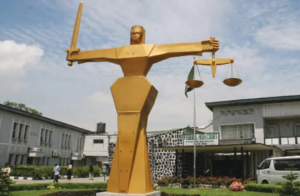
Human rights activist and politician Omoyele Sowore has been detained indefinitely by the Nigeria Police Force after refusing to comply with bail conditions he described as unconstitutional.
Sowore was invited for questioning after he released a video exposing alleged police extortion on Lagos roads. The footage, which he shared on his social media platforms, shows him confronting officers stationed along a busy road, urging them to stop causing unnecessary traffic.
“Operation Resist @PoliceNG extortion on Nigerian highways! #RevolutionNow” — Omoyele Sowore (@YeleSowore), January 9, 2025
Contentious Bail Conditions
The police offered bail conditions requiring Sowore to provide a level 16 civil servant as surety and surrender his international passport. Rejecting these terms, the activist declared on X (formerly Twitter):
“I refuse to participate in any arrangement that undermines my personal integrity.”
Sowore’s legal counsel, Femi Falana (SAN), strongly criticized the conditions, citing the Court of Appeal ruling in Dasuki v. Director-General, S.S.S., which declared similar bail requirements unconstitutional.
Falana argued that compelling public servants to act as sureties contradicts civil service regulations and undermines anti-corruption efforts.
The activist is currently being held at a police facility in Abuja, a location previously used by the now-disbanded Special Anti-Robbery Squad (SARS). From custody, Sowore reaffirmed his stance:
“I’d rather remain in custody until this joke is over.”
His Take It Back Movement, which has been vocal against police extortion and illegal roadblocks, has called for his immediate release. Critics argue that his detention highlights ongoing human rights violations and efforts by security agencies to suppress dissent.
As Sowore’s legal team prepares to challenge his continued detention, his defiance has become a symbol of resistance against what he and his supporters call systematic injustice within Nigeria’s law enforcement system.








